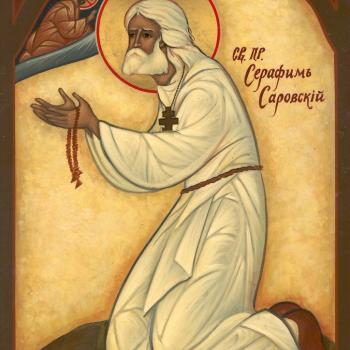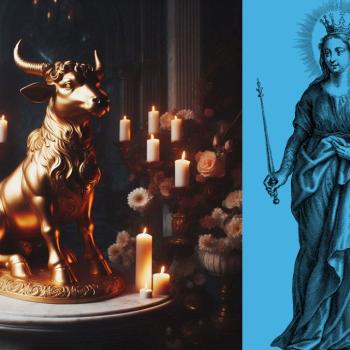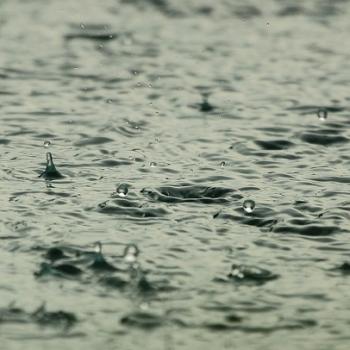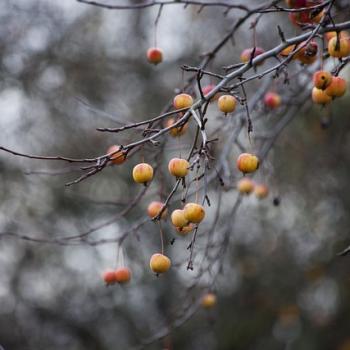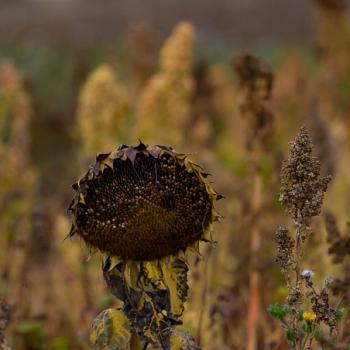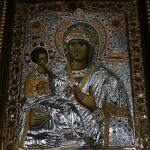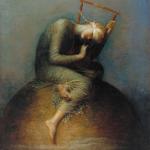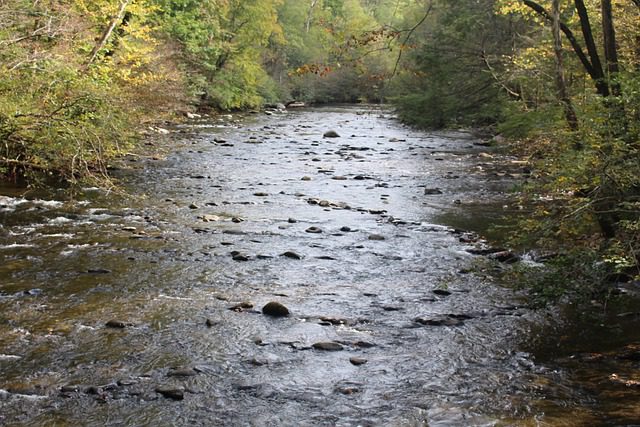
The day I rescued the mudpuppy was the day I became human.
We cared a lot about humans, growing up, and we were told that the culture which surrounded us did not. We were devout, conservative Catholics who valued life from womb to tomb. The world around us did not value life. They valued pleasure and having a good time. They did not value babies, which were the ultimate measure of whether a person valued life. They took birth control pills or inserted IUDs which would stop a baby from embedding in their mother’s endometrium and send them plummeting into the toilet. They used condoms and diaphragms to stop the sperm and egg from becoming a human in the first place, thwarting the will of God. They aborted their precious human children at every stage, all the way up to birth, just because they were selfish and didn’t like human life. They spent the money that should have been spent raising children on frivolities. They adopted pets and referred to the pets as their babies, which was paganism at its finest, the same as the golden calf from Exodus. They protested animal cruelty which was hypocrisy, since they’d probably all personally disposed of their offspring at the abortion mill. They slept in and then walked their spoiled pets to the coffee shop on Sundays, instead of going to Mass.
We, on the other hand, were the right kind of people. We followed every law that God handed down. We knew exactly how we were to behave and followed all the rules. We didn’t touch birth control. We had children. Lots of them. My beloved granny had seven live births and at least two miscarriages. Those seven children gave her thirty-five living grandchildren and quite a few miscarriages. I was the second oldest of the grandchildren. I was one of the names that my extended relatives remembered– they even remembered my middle name, though they never remembered that I hated being called “Mary Elizabeth” and just went by “Mary.” “You’re Mary Elizabeth, aren’t you? And you’re P, and you’re S, and you’re S, and you’re B. But who are you? And who are you? Whose daughter are you? Wow you have a lot of siblings. What does your grandmother do at Christmas?”
I loved my family.
I wanted to be a mother of a great big family of my own someday. I wanted to be a mother of a beautiful conservative Catholic family and not a little pagan one that didn’t value life. And I still long for more children. And I still miss my family and all the fun we had together.
Oh, we had so much fun.
I enjoyed having so many siblings and cousins to play with and fight with and tease. We had great times together, at least when we were little.
We used to have annual family reunions in a state park in the glorious wilderness of Pocahontas County, West Virginia, near where my ancestors had had a farm. These reunions lasted a full week, and that wasn’t nearly enough. Those were the best weeks of my childhood. All of us together, which I considered a very diverse group: Charismatic Catholics like my immediate family, Traditionalist Catholics like Aunt M’s family, the Neocatechumenal Way Catholics like my other aunt’s family, Opus Dei Catholics like my other aunt’s family, Catholics my mother said were “too worldly.” We prayed and sang and ate together. We went to Mass together on Sunday at Pocahontas County’s only Catholic church, and went to brunch afterward. We played. The children ran around in front of the cabins having a marvelous time. We hopped around on the big decorative boulders as if the muddy ground was lava, or else we rode on the rocks like horses, or else we imagined the rocks were mountains and the moss growing on them was an old growth pine forest. We skipped rocks and crushed the soft shale into powder in the crick. We put on plays and pageants. We ran back and forth between the towels hanging out to dry on the line as if they were tent flaps or stage curtains.
We caught crawfish and minnows in the crick– the little brook that wound all around the park, down to the artificial lake where you could rent a paddleboat and over the spillway to the Greenbriar river. The trick is to remember that crawfish can swim backwards very fast, faster than forward. We got to be experts at picking up a shale rock to reveal the crustacean, holding a paper cup behind them, and shooing them into the cup with a stick. Sometimes we pretended we were workers in a crawfish-catching corporation: I was the vice-president, because I was the second oldest cousin. My elder cousin was the CEO.
As we got older, the games changed year by year. And pretty soon I didn’t like them.
My cousins started to make the crawfish wrestle in an arena. If you haven’t interacted with crawfish much, you may not know they can wrestle. They have a reflex, when picked up from behind; it makes them open their big pincer claws wide. And then, when you put them down again, they clamp them shut. If you pick up two crawfish and shove them together, then put them down, they’ll snap their pincers together, and then they will wrestle to the death. My cousins made a fighting circle for this purpose, and pushed the crawfish together.
I didn’t like it, so I went off by myself to a quieter part of the crick to read a book.
Later I heard them talking. “He’s dead. He’s dead. Well, he’s clinically dead. He’s missing a leg and both front claws.”
It was pure hypocrisy. I would have gladly eaten a crawfish boiled in Old Bay, or a nice trout caught with a crawfish as bait. I was a nerdy girl, so I think I knew enough about biology at that point to know that crawfish don’t exactly feel pain the way vertebrates do. And I knew that God had given humans the right to dominate the earth. Humans were more valuable than animals. But it still made me sad to think of a crawfish with no claws.
The next year they did it again, and I went for hikes by myself or with my dear grandfather. When we got back, I heard my cousins talking about the grand finale to their battle royale: they had sprayed the surviving crawfish with the big aerosol can of bug repellant, to see what would happen.
And then there were the things that happened to the other animals you can find in a crick: not just minnows and crawfish but worms, toads, black salamanders with gold sparkles on their backs, all too helpless to get away. There was a hive of something that must not have been hornets, because they didn’t get stung hardly at all when my cousins poured cold tea on it.
One day I came back to the cabin to find my cousin holding a dead frog. They’d been “playing” with it, in ways I didn’t ask about, until it leaped out of their hands and onto the floor. That was the story they told. Surely the fall is not what killed it, but the toad was dead. They asked if they could burn the corpse, but my mother said they couldn’t, because burning dead animals was something pagans did in rituals. They were allowed to bury it, though. They ended up throwing it in the hornets’ nest.
Another year, they’d captured quite a menagerie: not only crawfish and minnows, toads and salamanders, but a great big slithery mudpuppy longer than my hand and wrist put together.
I could not stand mudpuppies. They looked like freakishly large earthworms with freakishly small vestigial legs, and they disgusted me. The thought of a mudpuppy brushing against my skin was enough to make me not want to go in the crick at all.
My cousins put the mudpuppy in an old jumbo-discount-size margarine container with an inch of crick water. They left it on the porch while they went in to dinner.
I didn’t want any dinner.
I couldn’t stop thinking of what fate awaited the mudpuppy, for dessert.
It was pure hypocrisy, like compassion for a thing without a nervous system. I didn’t like this mudpuppy or any mudpuppies. I would have been perfectly happy if mudpuppies all went extinct in an instant. They were revolting. The worst sensation I could imagine, sitting on that porch, was that the mudpuppy would somehow get out of the margarine container and brush against me. But I had to do something or I felt I would die of shame. I had to break one of the Ten Commandments handed down to us by God. I had to steal my cousins’ mudpuppy, caring more about animals than the God-given rights of humans to dominate the earth, just like a pagan.
It wouldn’t be enough to kick over the prison and hope the mudpuppy slithered into the crick. My cousins could find it again.
With every fiber of my being recoiling, I picked up the margarine tub, and I started to walk.
“It’s okay,” I said to the mudpuppy– talking to animals as if they could talk back, just like a foolish pagan woman talking to her dogs on a Sunday morning when she ought to be in church. “It’s okay. We’re going home now. I’m going to take you to a safe place. Please don’t move.”
It moved, and I shuddered.
Every time it moved, I shuddered.
I shuddered all the way down the road which is called Buck’s Run, down past the administration building, down to the lake where the paddleboat rental shack was closed for the night. It should have taken about ten minutes, but it took me closer to twenty because I was walking so slowly, terrified that I’d spill the mud puppy onto the pavement– or worse, onto my hands.
Finally, I reached the place where the crick ran into the artificial lake. I tilted the margarine container into what looked like a comfortable shallow spot. The repugnant creature slithered out, into the cloudy water, with a plop that reminded me of a bowel movement. I shuddered one last time.
I brought the margarine container back to the cabin. I set it down just where it had been, so my cousins would think a raccoon helped himself to the mudpuppy.
I went inside, prayed grace, and had a cold dinner. Nobody asked me where I’d gone.
I had acted out of compassion instead of following rules– indeed, I’d broken rules, out of compassion. I’d hated every minute of it. I never wanted to do it again. And yet it made me feel like a human with a conscience, in a way I hadn’t before.
I don’t know whether that makes me a pagan.
If I ever do see Christ face to face, I hope I am shown as much mercy.
Image via Pixabay
Mary Pezzulo is the author of Meditations on the Way of the Cross and Stumbling into Grace: How We Meet God in Tiny Works of Mercy.
Steel Magnificat operates almost entirely on tips. To tip the author, visit our donate page.





